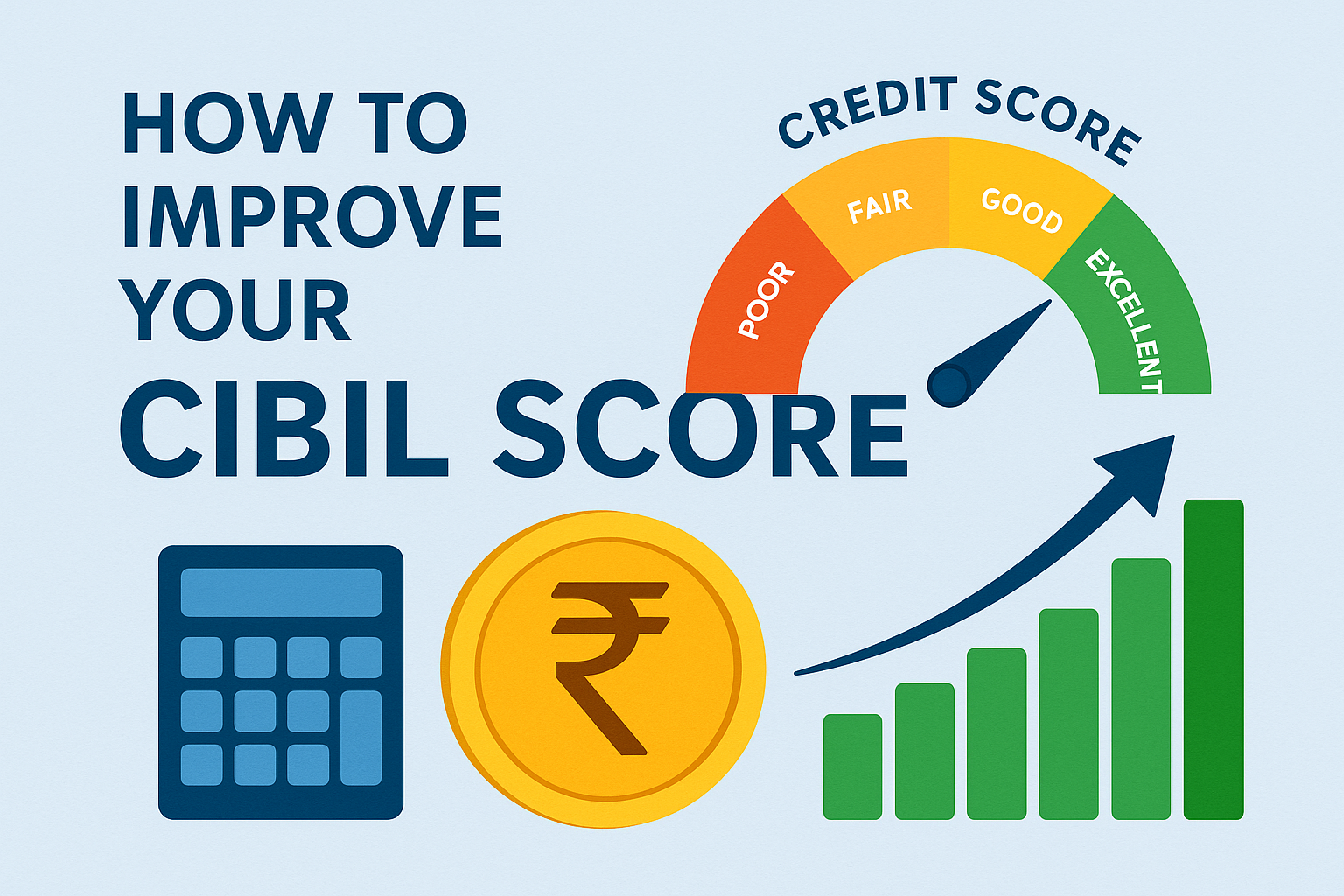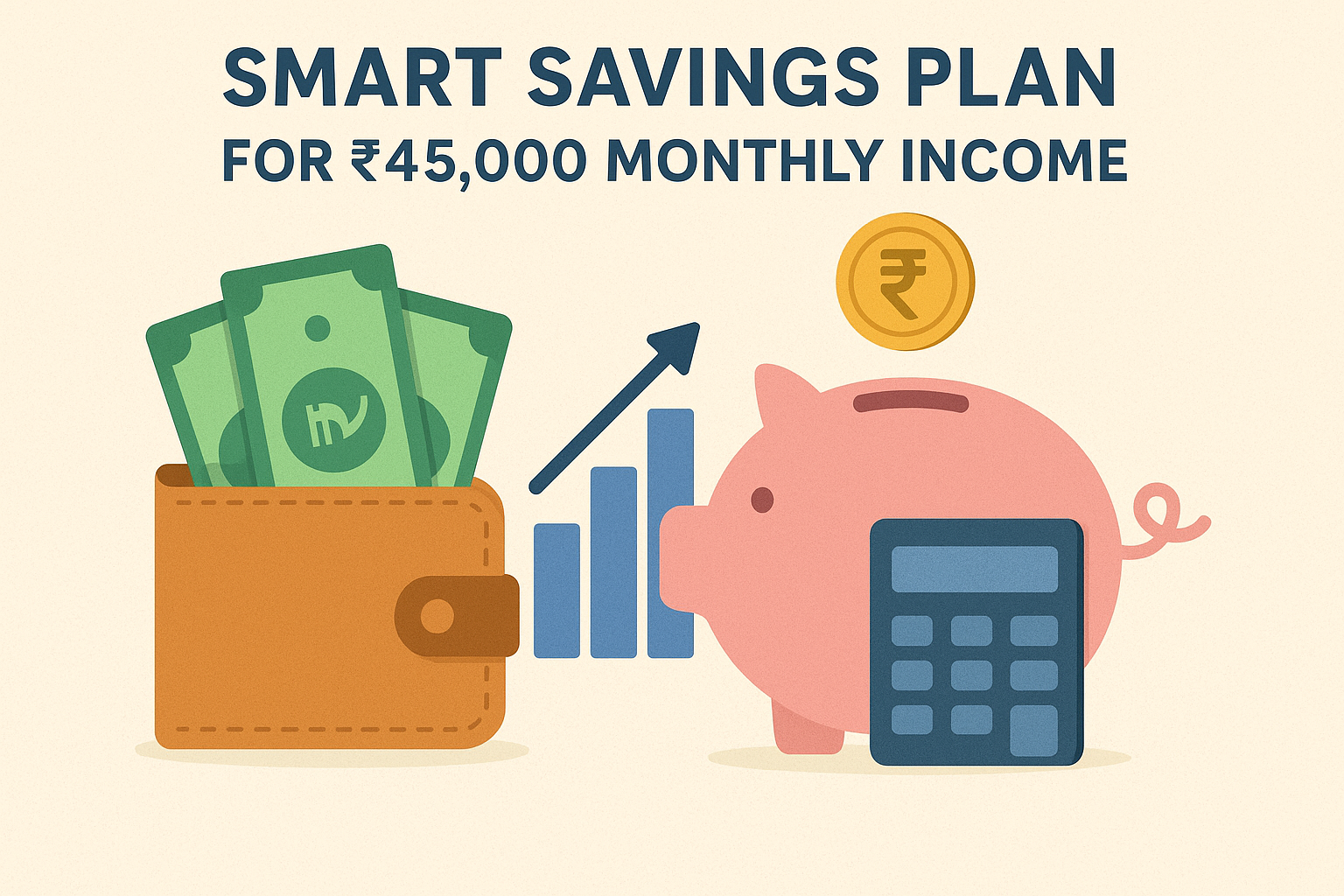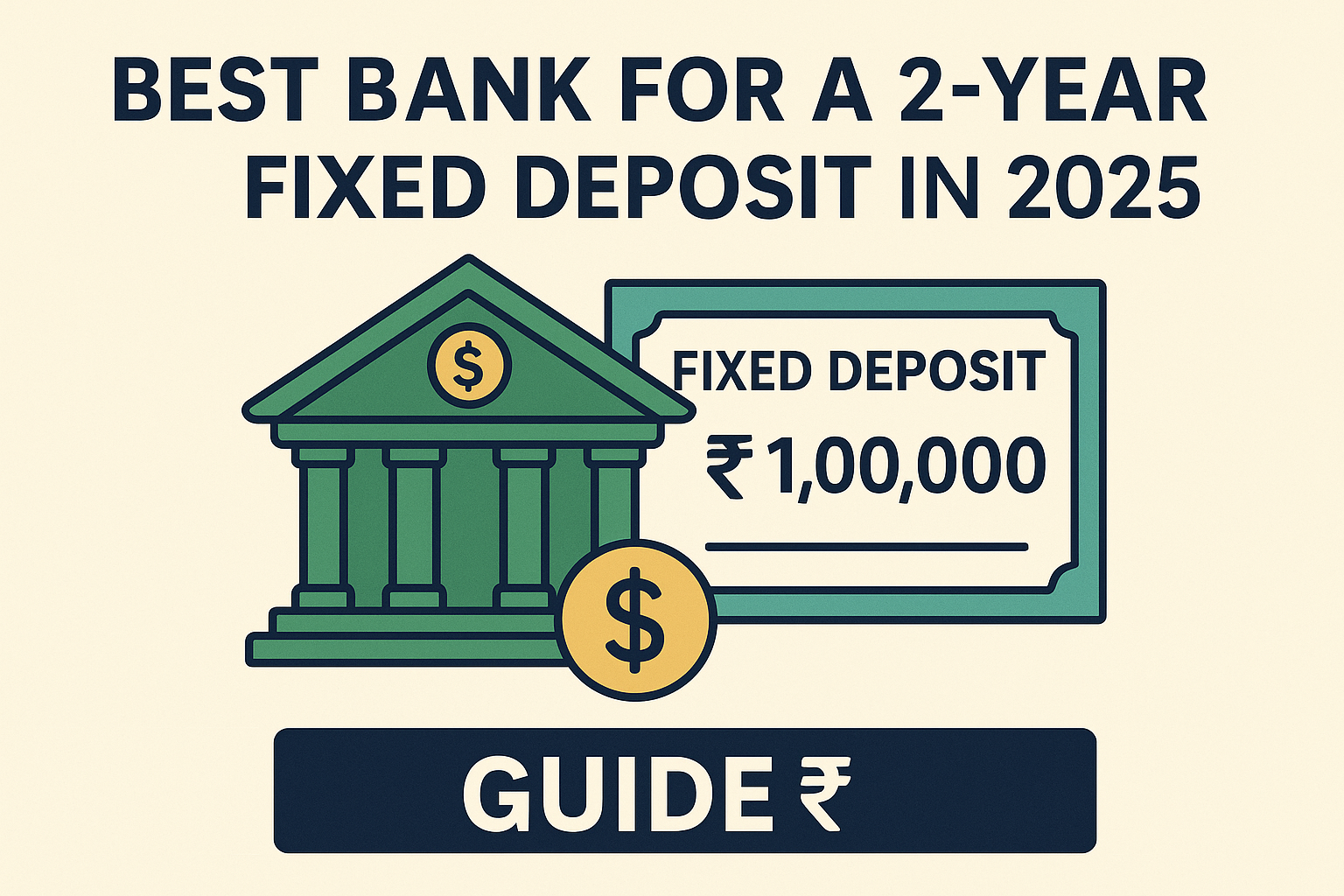Your CIBIL score plays a vital role in getting loans, credit cards, and favorable interest rates. A high score (750 and above) signals good creditworthiness, while a low score can make lenders hesitant. If your score isn’t where you want it to be, don’t worry — it’s possible to improve it with the right steps.
Below are practical, point-wise tips to boost your CIBIL score effectively:
- Pay All Bills on Time
Timely payments of EMIs and credit card bills are the most important factor in maintaining a healthy CIBIL score.
Set reminders or enable auto-debit to avoid missing due dates.
Even a single late payment can negatively impact your score.
- Maintain a Low Credit Utilization Ratio (CUR)
Credit utilization ratio is the percentage of your total credit limit you use.
Keep CUR below 30%.
For example, if your card limit is ₹1,00,000, try not to spend more than ₹30,000 in a billing cycle.
High utilization signals a dependency on credit and can hurt your score.
- Avoid Multiple Loan or Credit Card Applications at Once
Every time you apply for credit, lenders check your report, which is recorded as a hard inquiry.
Multiple inquiries in a short time make you look “credit hungry.”
Space out applications by at least 6 months.
- Clear Outstanding Dues and Settlements
If you have overdue payments or “settled” accounts, resolve them fully.
A “settled” status means you did not pay the full amount, which lowers trust in your repayment ability.
Request lenders to update the status to “Closed” after full payment.
- Keep a Healthy Credit Mix
A good balance of secured loans (home loan, car loan) and unsecured loans (personal loan, credit cards) boosts your score.
Too many unsecured loans can be risky in the eyes of lenders.
- Avoid Closing Old Credit Accounts
Length of credit history matters.
Older accounts show your long-term relationship with credit.
Closing old cards reduces your average credit age and can lower your score.
- Check Your CIBIL Report Regularly
Sometimes, your score may be low due to errors or outdated information.
Download your report every 6 months.
Dispute inaccuracies like incorrect loan accounts or wrong payment history.
- Pay More Than the Minimum Amount Due
Paying only the minimum due on credit cards increases interest and debt load.
Always try to pay the full bill to avoid rolling balances.
- Increase Your Credit Limit (But Use It Wisely)
If you maintain a low utilization despite a high credit limit, your CUR improves.
Request a limit enhancement from your bank but avoid overspending.
- Build Credit History if You’re New to Credit
If you have no prior credit, your score will be low or “NA.”
Start with a secured credit card against a fixed deposit.
Take small loans and repay them on time to establish your credit profile.
- Avoid Co-signing Loans Without Caution
If you co-sign and the primary borrower defaults, your score will also drop.
Co-sign only if you trust the borrower’s repayment capacity.
- Stay Consistent and Patient
Improving your CIBIL score is a gradual process.
Changes usually reflect within 3–6 months of consistent good habits.
Final Words
A good CIBIL score is your passport to better financial opportunities. By paying bills on time, keeping credit utilization low, maintaining a healthy credit mix, and checking your report regularly, you can steadily improve your score and enjoy stress-free access to credit.







